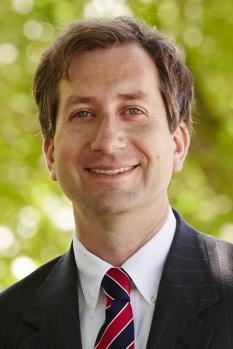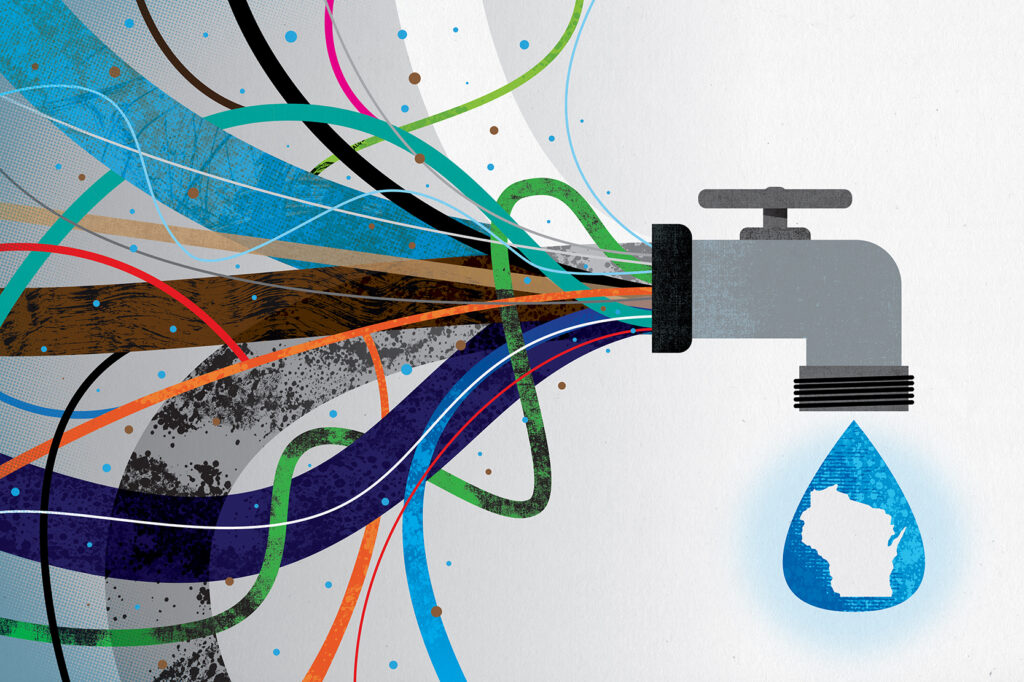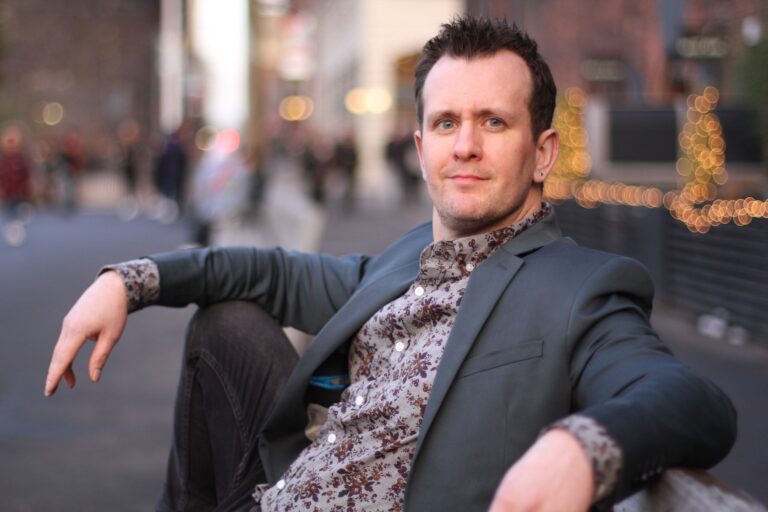Through research, education and public discourse, Marquette Law’s David Strifling is leading an important dialogue on drinking water safety.
In September 2016, about a year after Professor David Strifling, Eng ’00, Law ’04, became the director of Marquette Law School’s Water Law and Policy Initiative, he organized a drinking water conference at the Law School’s Lubar Center that “lit the fuse in Milwaukee on the conversation about lead pipes,” he says. People packed a panel discussion featuring then-Mayor Tom Barrett and Virginia Tech scientist Marc Edwards, who had exposed lead contamination in the water in Flint, Michigan. Some audience members shouted for local change. Outside, protesters marched.

“It was surreal,” says Strifling. But the event ignited results. The City of Milwaukee began handing out free water filters and has since replaced 7,000 of 73,000 lead water service lines, with plans to remove many more.
Bringing the local perspective into focus by convening experts in a public forum is one of the many ways Strifling, a civil-and-environmental-engineer-turned-lawyer, has become a leading voice on water contaminants, including road salt, agricultural pollution, urban runoff and “forever chemicals” known as PFAS. He also contributes to multidisciplinary research programs, mentors student researchers and leans into community outreach to broaden understanding.
“Professor Strifling recognizes that making the Water Law and Policy Initiative a leader in solving Wisconsin’s water issues requires a variety of approaches,” says Law School Dean Joseph Kearney.
At a public event in April 2023, Strifling hosted Congresswoman Gwen Moore, Arts ’78, for a community conversation to discuss the importance of having access to clean drinking water. “[Clean water] is a luxury that not everyone can afford, and that’s why I lose sleep over lead pipes,” she told the audience.
Engaging with the public is central to Strifling’s approach. He and members of his research teams, which often include Law School students, have conducted stakeholder surveys of residents, water utilities and state agencies.
On Capitol Hill, Moore advocates for policies that support water research, such as Marquette’s multidisciplinary “Defense of Water” project to develop novel technologies that protect the environment and provide clean drinking water, launched through a $3.8 million award in 2021 from the U.S. Army Engineeer Research and Development Center. A planned second phase of this project, on which Strifling will be a contributing senior team member, proposes expanding the project in multiple ways, including investigating (and aiming to improve) how communities understand risk, develop trust in information sources and respond to threats around PFAS and lead contamination.
Engaging with the public is central to Strifling’s approach. He and members of his research teams, which often include Law School students, have conducted stakeholder surveys of residents, water utilities and state agencies. Strifling also partners with Marquette’s nationally recognized Law School Poll to measure Wisconsinites’ concerns over water contaminants. The most recent results, released in June 2022, showed that slightly more Democrats than Republicans are concerned about water contamination issues, though the differences were minor.
Some have described the Law School as Milwaukee’s public square, says Strifling. Being a forum for conversation around critical water issues “is an important part of our mission and something we try to live out day to day.”




